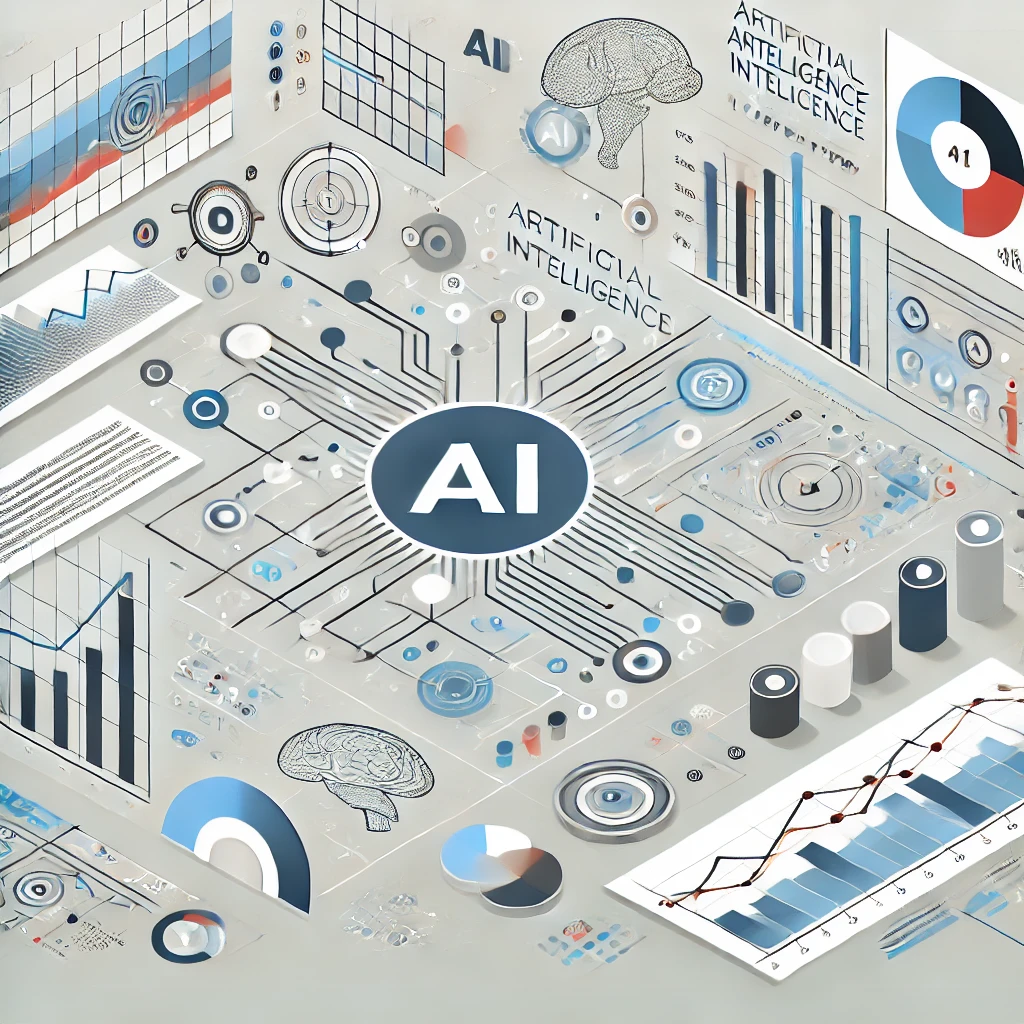Introduction: The Transformation of AI and Data
In the digital age, the business world is undergoing rapid transformation. At the heart of this change are artificial intelligence (AI) and data science, offering unique opportunities for businesses. Data is no longer just a tool for information gathering; when analyzed correctly, it becomes a powerful resource that shapes strategic decision-making processes in businesses. Especially with big data, businesses can conduct deep analyses and predict future trends. Companies can achieve operational efficiency and gain a competitive advantage through AI-powered data analysis.
AI provides solutions across a wide range of areas, from automation to customer relationship management, marketing to logistics. In this post, we will take a deep dive into how AI integrates with data, how to implement this technology into business processes, and what opportunities it presents for future business strategies.
Part 1: AI-Driven Data Management
Data management is one of the most critical components of modern businesses. As the amount of data generated in the business world increases every day, it becomes increasingly important to analyze this data effectively. However, manually analyzing vast amounts of data is nearly impossible. This is where AI comes in. AI algorithms and machine learning models are used to analyze large datasets, extract meaningful insights, and make strategic decisions.
- Data Analysis with AI: AI has the ability to derive insights from complex datasets. For example, an e-commerce business can analyze its customers’ purchasing history, demographic information, and online behavior to create personalized campaigns. Such analysis not only improves customer service but also increases revenue for businesses.
- Process Automation: AI is used not only for data analysis but also for automating business processes. For instance, a financial company can use big data to perform credit risk assessments or automatically process insurance claims. This reduces labor costs while minimizing the margin of error.
- Machine Learning and Predictive Analytics: AI and machine learning algorithms can be used to predict future events based on historical data. For example, a retail business can analyze sales data to predict which products will sell the most and optimize inventory management.
These capabilities offered by AI allow businesses to manage their data more efficiently and accelerate decision-making processes.
Part 2: Improving Customer Experience with Strategic Data
Customer experience is a critical factor in helping businesses gain a competitive advantage. Modern marketing strategies aim to improve customer experience with the help of data analytics and AI. Data-driven customer relationship management allows businesses to offer more personalized services.
- Personalized Marketing Strategies: AI and data analytics enable businesses to examine customer profiles in greater detail. For example, if a customer shows more interest in certain products on an online store, AI can detect this and present personalized ads. Special campaigns can also be created for this customer, improving both customer satisfaction and purchase rates.
- Customer Behavior Analysis: AI analyzes customer behaviors, enabling businesses to provide better service. For example, a customer service team can analyze incoming requests using AI-powered chatbots and quickly resolve common problems. This increases customer satisfaction and helps businesses operate more efficiently.
- Sales and Marketing Process Optimization: AI-powered data analytics makes sales and marketing processes more efficient. For example, a sales team can use AI to identify which customers are most likely to make a purchase, allowing them to focus on these prospects and increase sales.
Part 3: Data Security and AI
Data security is of critical importance in the modern business world. Especially for businesses working with large datasets, data breaches and security violations pose significant risks. AI offers effective solutions for data security.
- AI Solutions Against Data Breaches: AI algorithms can detect abnormal data behavior and identify potential security threats in advance. For example, a bank can detect unusual withdrawals from customer accounts and prevent fraud activities.
- AI and Cybersecurity: AI is used to create more effective defense mechanisms against cyberattacks. AI-powered security systems can constantly analyze threats and prevent attacks, enhancing data security for businesses.
- Data Privacy and AI: AI also plays an important role in data privacy. Especially with regulations like GDPR, it is mandatory to protect customer data. AI can automate data processing workflows to ensure compliance with such regulations.
Conclusion: Future Business Strategies with AI
AI and data analytics continue to revolutionize the business world. Looking ahead, the strategic use of these technologies will be crucial for businesses to gain a competitive advantage. When combined with data analytics, the opportunities offered by AI allow businesses to operate more efficiently, innovatively, and customer-focused.
In the future, business processes will become even more automated with AI, and data science will become an important decision-making tool in every sector. Businesses adapting to this change will play a critical role in their future success.
SEO Keywords:
- AI data analysis
- Data management strategies
- AI in business
- AI strategies
- AI customer experience
- AI data security



